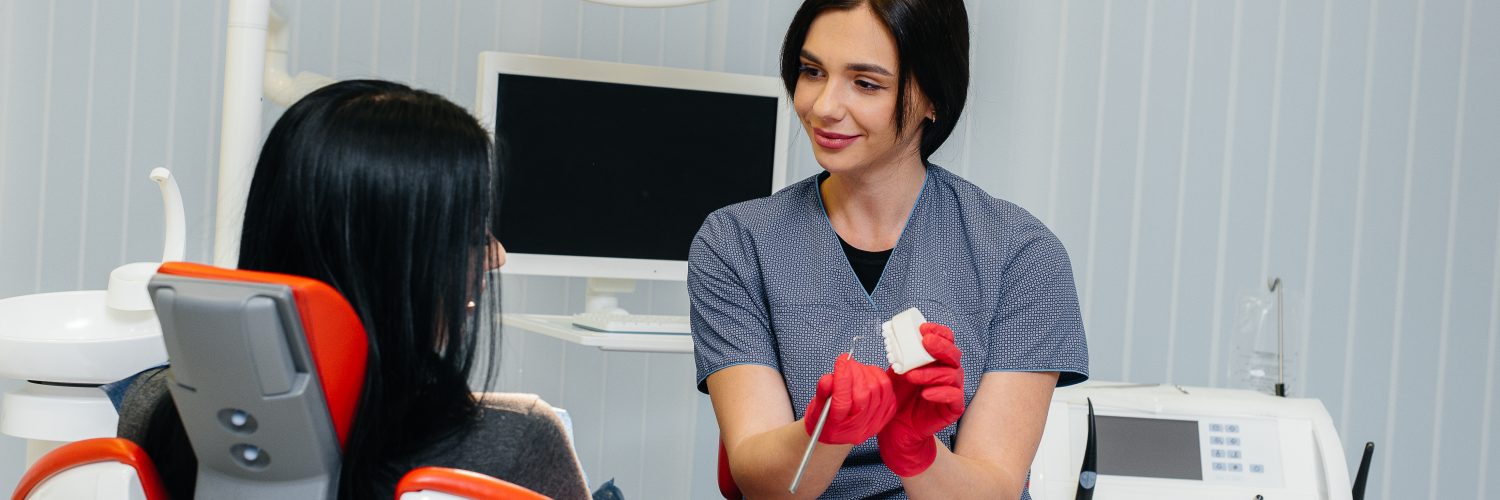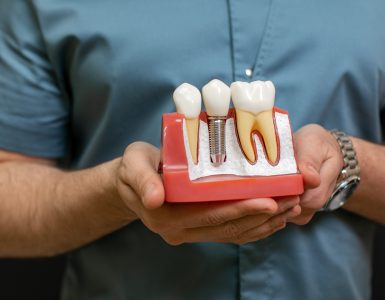For some losing a tooth may not seem a big deal and you’ll just get used to being without it. For others the effect on your smile might make you incredibly self-conscious. After a tooth loss you may wonder whether you really need or want to replace it. There are other very important factors, apart from your smile, that you need to take into consideration when deciding to replace a missing tooth.
What causes tooth loss?
Over time, and particularly as we age, most of us will at some stage suffer the loss of a tooth. These are the most common reasons:
- The bacteria in plaque on your teeth turns the sugars in food and drink into acid that can wear down the enamel in your teeth causing decay. If this decay is not treated the cavity can destroy the pulp at the centre of your tooth, resulting in the need for a root canal, or possibly the removal of your tooth.
- Gum Disease. A severe gum infection damages the tissues that hold your teeth in place and can lead to deterioration in the jawbone underneath the gums. This lack of support can lead to tooth loss and is the main cause of tooth loss among adults.
- Disease or Illness. There are some conditions, such as diabetes, cancer, osteoporosis, rheumatoid arthritis and others, that can affect your teeth and gums causing gum disease and affecting the bone in your jaw.
- Physical Injury or Trauma. Accidents can happen, particularly to younger people who play a lot of sport, whether during rugby or other high contact sport, or falling off a skateboard at the park. You could have a fall, or be in a car accident. However, other causes of damage or tooth loss can be avoided. It’s not a good idea to use your teeth to open lids, remove caps, chew ice, crack nuts or loosen knots and other similar things that could cause harm to your teeth.
Is it important to replace a missing tooth?
A missing tooth is more important than just how it looks, it can have an impact on your dental health. Your teeth pay an important role not just in eating, but also in supporting your face and jaw, so missing teeth can cause problems inside and outside of your mouth impacting not only your appearance, but also your oral health and general health.
- General Health. Missing teeth can affect your ability to chew your food properly and can cause pain or prevent you from eating some foods. Avoiding some foods may lead you to have some nutritional deficiencies in your diet which could impact your overall health and wellbeing.
- Mental Health. Having a gap in teeth can often make you feel self-conscious causing you to lose confidence, cover your mouth and avoid smiling. It may also affect how you sound when you talk by interfering with your speech patterns.
- Shifting Teeth. Your teeth support each other, so when a tooth is missing the remaining teeth may move to fill the gap causing crooked or misaligned teeth creating small areas in your mouth that are hard to brush and floss. This could cause problems due to a build-up of plaque and tartar and increases your risk of gum disease.
- Bone Loss. The tooth roots support the jaw and provide stimulation to the jawbone. When a tooth root is missing the bone in the jaw starts to deteriorate in height and width due to the lack of stimulation.
- Changing Face. The resultant bone loss over time can affect the associated muscles causing them to droop. This can affect the shape of your face, cause wrinkles around your mouth and your face to sag making you look older and less attractive. The more teeth that are missing, the greater the change in your appearance.
There are several options available, such as dental implants, dental bridges and dentures. Your dentist will be able to advise you on the best solution that will suit your individual needs.




